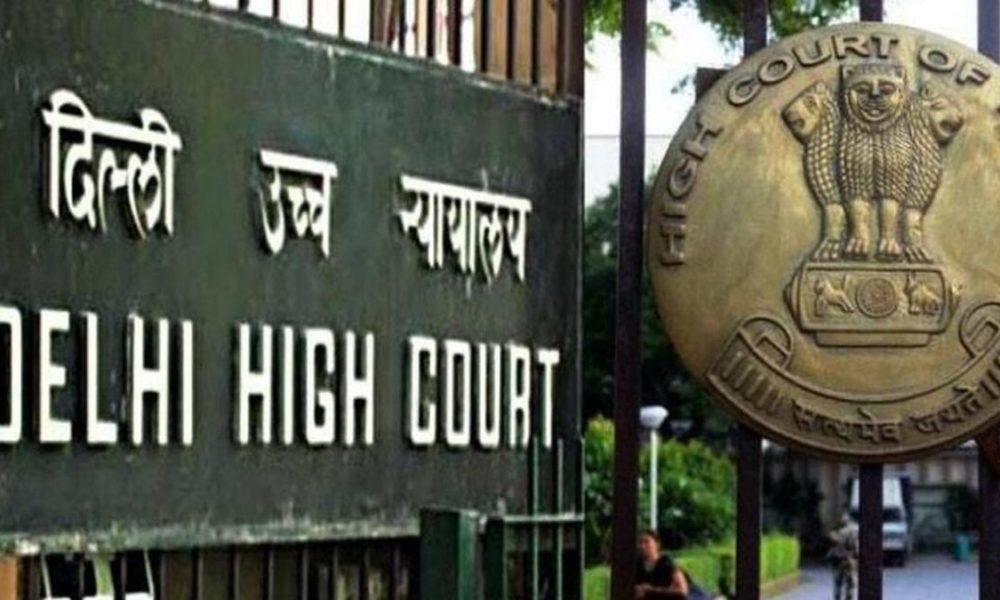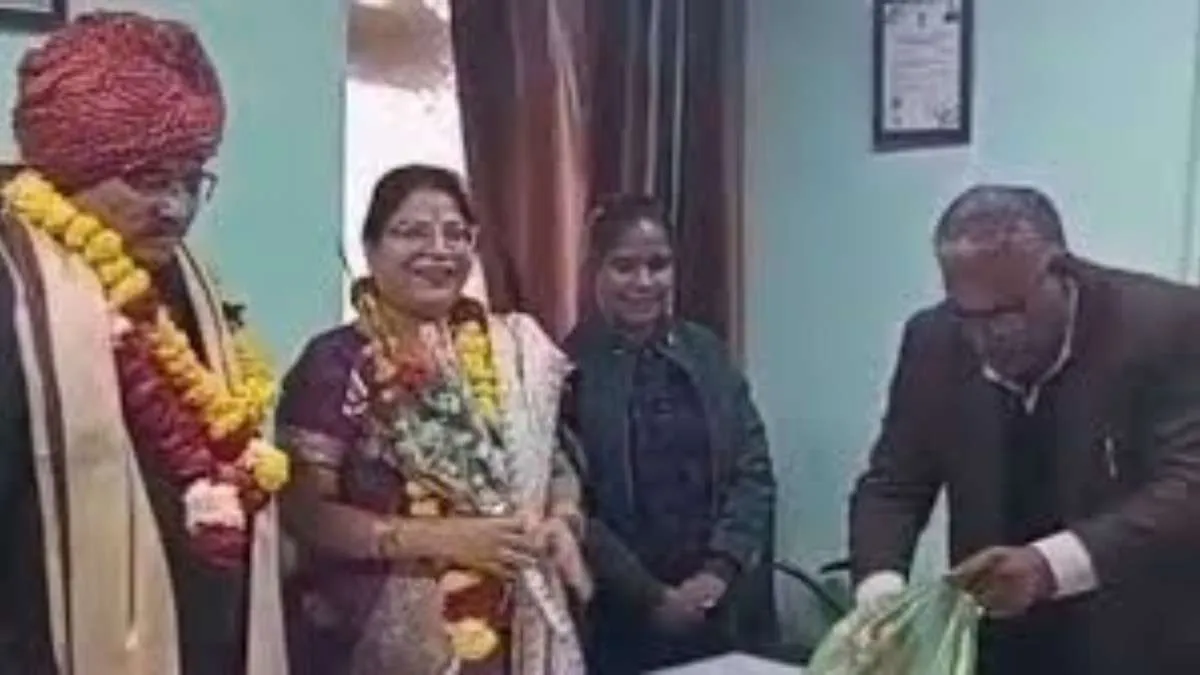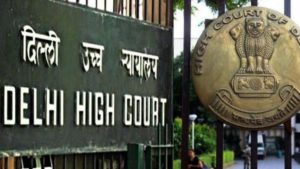In a significant development, we saw how just recently on May 27, 2022, the Delhi High Court in an extremely laudable, learned, landmark and latest judgment titled Sh Jagmohan Kashyap v. Govt of NCT of Delhi & Anr in CRL.M.C. 2269/2020, CRL.M.A. 16125/2020 (for ad-interim exparte stay) has observed quite explicitly that the right to claim maintenance under the Domestic Violence Act, 2005 and under Section 125 of Code of Criminal Procedure are not mutually exclusive. Hon’ble Ms Justice Asha Menon was of the firm view that the aggrieved person can seek interim maintenance before the Magistrate while also seeking a permanent maintenance under Section 125 CrPC. The Court said that, “The only caveat is that maintenance granted by one court will be factored in by the other court before granting or refusing maintenance.”
To start with, this brief, brilliant and balanced judgment authored by a Single Judge Bench of Delhi High Court comprising of Hon’ble Ms Justice Asha Menon sets the pitch in motion by first and foremost putting forth in para 1 that, “The petitioners and respondent No.2 are husband and wife. Multifarious litigation is going on between them, one before the learned MM under the Protection of Women from Domestic Violence Act, 2005 (DV) Act and the other before the learned Family Court under Section 125 Cr.P.C. The present petition has been preferred against the orders dated 30th January, 2020 passed by the learned ASJ, Saket Court in an application preferred by the respondent No.2, u/s 5 Limitation Act against the order of the learned MM, dated 29th September, 2014 condoning a delay of three years and ninety-nine days in filing an appeal against the said order.”
As it turned out, the Bench then notes in para 2 that, “It may be mentioned here that in the complaint case filed by the respondent No.2 under the DV Act, vide orders dated 29th September, 2014, her application filed under Section 23 for seeking interim maintenance from the petitioner was dismissed. The learned ASJ opined that though there was a long delay in filing the appeal, the appellant had sufficiently explained the cause for the delay. Accordingly, the application for condonation of delay was allowed subject to cost of Rs.8,000/-.”
On the one hand, the Bench points out in para 3 that, “It is the contention of Mr. Ashish Upadhyay, the learned counsel for the petitioner, that there was no valid explanation offered for this delay in filing the appeal and therefore, the condonation of an inordinate, unreasonably long period, without just cause, was erroneous and had caused miscarriage of justice. According to the learned counsel for the petitioner, the explanation offered by the respondent No.2 for the delay was lack of funds to pursue the appeal and disinclination to engage with the Legal Services Authority for legal assistance, and that the consequences of this indecision must fall on the respondent No.2 and not on the petitioner. It is further submitted that the respondent No.2 was earning well from chit fund schemes and was not bereft of funds. Thus, the reasons given to seek the condonation of delay were bogus and misleading. Accordingly, it was prayed that the impugned order be set aside.”
On the contrary, the Bench then mentions in para 4 that, “Mr. S.S. Wani, learned counsel for the respondent No.2, on the other hand, submitted that the D.V. Act was a beneficial piece of legislation and relief under the said Act ought not to be denied on technicalities. It was submitted that in any case, adequate explanation had been offered for condonation of delay. Moreover, the Family Court while disposing of the application for interim relief under Section 125 Cr.P.C. on 8thJanuary, 2018 had also permitted the respondent to approach the court under the D.V. Act. Therefore, the delay in filing the appeal had been rightly condoned.”
As we see, the Bench then observes in para 5 that, “It was submitted that the learned MM, vide its order dated 29th September, 2014 decided the application for grant of interim maintenance under Section 23 of the D.V. Act, granting maintenance @ Rs.4,000/- to each of the minor children but had granted no maintenance to the respondent No.2. Learned counsel submits that at that point of time the application filed by the respondent no.2 under Section 125 Cr.P.C. being M. No.158/2012 was pending and she was advised that she could seek maintenance from the Family Court. As a result, she did not file an appeal at that time. Subsequently, the learned Family Court vide order dated 8th January, 2018 observed that the Family Court would not re-adjudicate the issue of interim maintenance since it was declined by the learned MM. But that order preserved her rights to challenge the orders of the learned MM by an application seeking condonation of delay. Thus, too it was contended that there was no error in the impugned order.”
While citing the key relevant case laws, the Bench then states in para 6 that, “Reliance has also been placed on the judgment of the Supreme Court in Oriental Aroma Chemical Industries Ltd. v. Gujarat Industrial Development Corpn., (2010) 5 SCC 459, Ved Prakash v. Rajneesh Kumar, 2019 SCC OnLine HP 2112, Judgement dated 2nd August, 2018 in Kanchiraj @ Kangeyaraj vs Pappathi in C.R.P.(MD)(NPD)No.2413 of 2015 by Madurai Bench of Madras High Court and Suchandra Bhutoria v. State of W.B., 2015 SCC OnLine Cal 1886.”
It is worth noting that the Bench then hastens to add in para 7 that, “I have heard the submissions of both counsel and have perused the material on record, as well as the cited judgments. This appears to be a case where different avenues for relief has caused enough confusion, which both, the Family Court as well as the learned ASJ, have tried to sort out. The D.V. Act is, without doubt a piece of welfare legislation, to protect the interests of women in a domestic relationship and shared household, against not just physical abuse but also emotional and financial abuse. The learned ASJ was, therefore, right in dealing with the condonation application in that perspective and not choosing to dismiss the appeal on procedural technicalities. It is yet to be seen by the learned Appellate Court whether the denial of maintenance by the learned MM was justified on the ground that the respondent No.2 had adequate means. Therefore, this Court is reluctant to comment on the claim of the petitioner that the respondent No.2 was earning from chit fund business.”
Most significantly, the Bench then enunciates in para 8 what forms the cornerstone of this notable judgment wherein it is postulated that, “As has been held by the Supreme Court in Oriental Aroma Chemical Industries Limited(supra), the law of limitation was founded on public policy but so is the D.V. Act. Both the enactments, therefore, have to be balanced out. No doubt, inordinate delay would vest certain rights in the opposite party but when it comes to the question of maintenance and welfare of family members protected by the D.V. Act, there can be no vesting of such rights that would result in the divesting of rights assured by a special piece of legislation. It is not as if the respondent No.2 had resorted to dilatory tactics or a leisurely time taken to file the appeal, intended to harass the petitioner. Rather, she continued to pursue her right to maintenance before the learned Family Court under Section 125 of the Cr.P.C. The right to claim maintenance under the DV Act and those u/s 125 Cr.P.C. are not mutually exclusive, i.e., the aggrieved person can seek interim maintenance before the learned Magistrate while also seeking a permanent maintenance under Section 125 Cr.P.C. The only caveat is that maintenance granted by one court will be factored in by the other court before granting or refusing maintenance.”
Needless to state, the Bench then envisages in para 9 that, “The courts have always held that “sufficient cause” under Section 5 of the Limitation Act, 1963 was elastic enough to be applied by the courts in a meaningful manner, which sub-served justice. The duration of delay would not be determinative of the merits of the explanation. The facts, as brought as the explanation for delay, and the intent of the party seeking condonation as evidenced from the circumstances, would guide the court in the exercise of its discretion to condone the delay in family matters.”
For the sake of clarity, the Bench then clarifies in para 10 that, “It is settled law that under Section 482 Cr.P.C, this Court will not act as a court of appeal. It will be only if perversity or non-application of mind is disclosed in the impugned order or the impugned order results in a grave miscarriage of justice, that the court would interfere with it in exercise of these powers. The present case does not disclose any such circumstance. Being devoid of merit, it is accordingly dismissed alongwith the pending application.”
Finally, the Bench then concludes by directing in para 11 that, “The judgment be uploaded on the website forthwith.”
All in all, this recent, refreshing, robust, rational and remarkable judgment authored by a Single Judge Bench of Delhi High Court comprising of Hon’ble Ms Justice Asha Menon has made it indubitably clear that the right to claim maintenance under Domestic Violence Act and under Section 125 CrPC are not mutually exclusive. Of course, we have already dwelt on this in considerable detail in para 8 as stated hereinabove. It definitely merits no reiteration that all the Courts must in similar such cases always comply with what the Delhi High Court has laid down so clearly in similar such cases! There can certainly be just no denying or disputing it!
Sanjeev Sirohi, Advocate
While citing the key relevant case laws, the Bench then states in para 6 that, “Reliance has also been placed on the judgment of the Supreme Court in Oriental Aroma Chemical Industries Ltd. v. Gujarat Industrial Development Corpn., (2010) 5 SCC 459, Ved Prakash v. Rajneesh Kumar, 2019 SCC OnLine HP 2112, Judgement dated 2nd August, 2018 in Kanchiraj @ Kangeyaraj vs Pappathi in C.R.P.(MD)(NPD)No.2413 of 2015 by Madurai Bench of Madras High Court and Suchandra Bhutoria v. State of W.B., 2015 SCC OnLine Cal 1886.”
Needless to state, the Bench then envisages in para 9 that, “The courts have always held that “sufficient cause” under Section 5 of the Limitation Act, 1963 was elastic enough to be applied by the courts in a meaningful manner, which sub-served justice. The duration of delay would not be determinative of the merits of the explanation.














